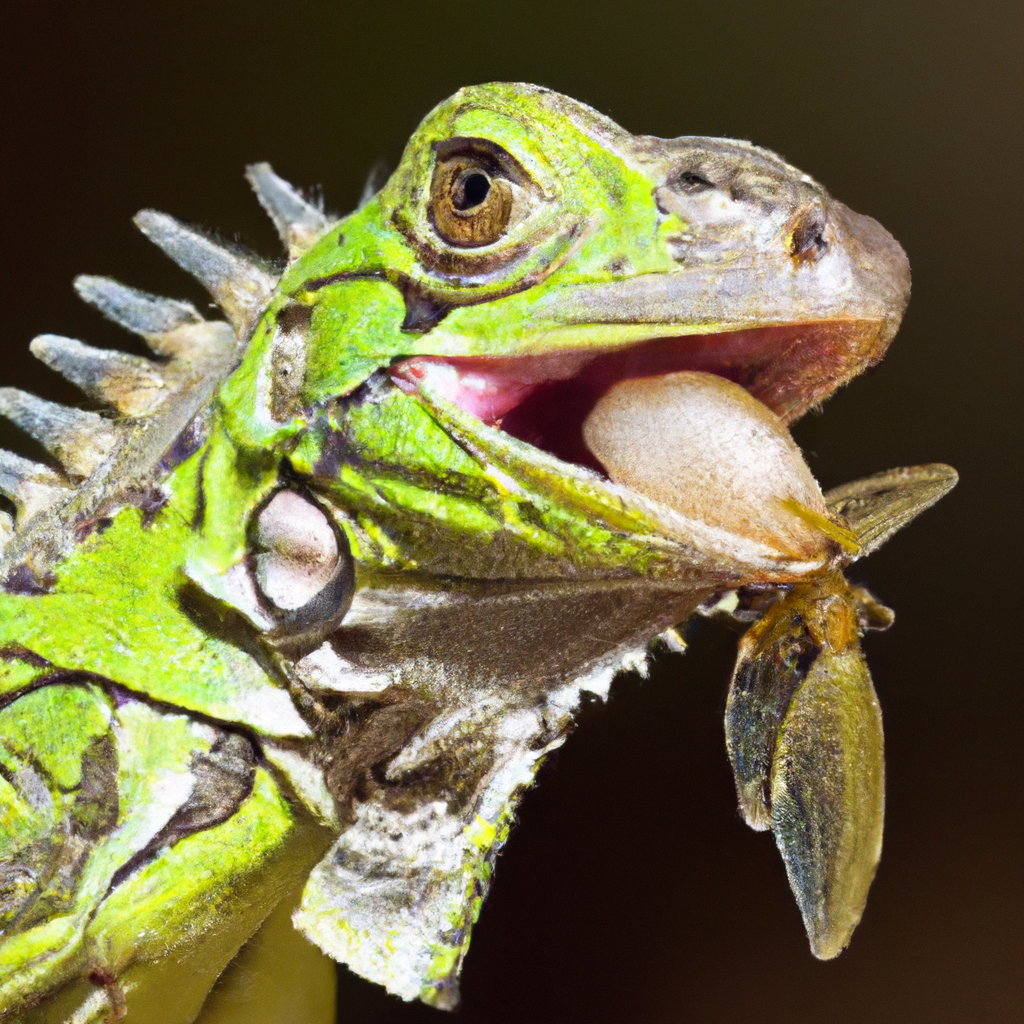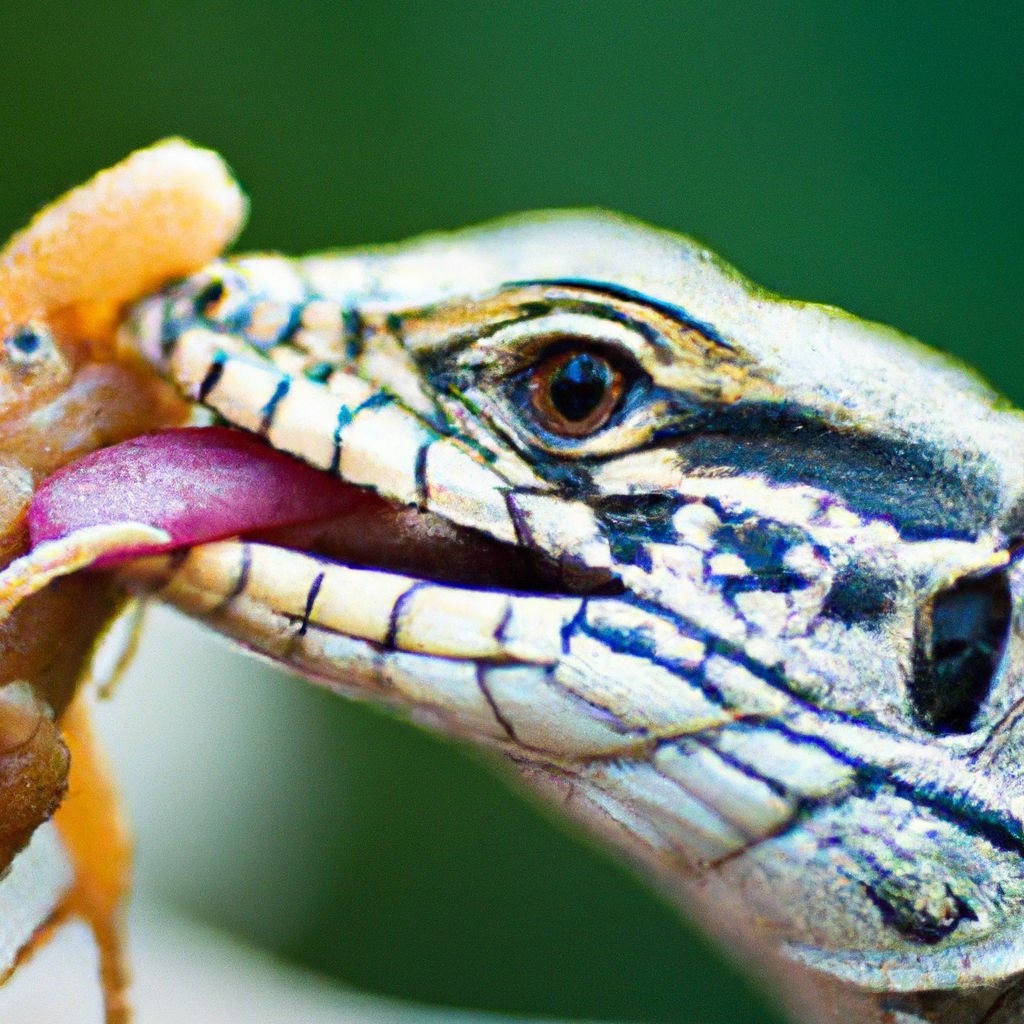Imagine having a reptile as a pet, but not knowing what to feed them. That’s where “Insectos Para Reptiles” comes in. This revolutionary company is dedicated to providing high-quality insects specifically designed for reptiles. With their selection of nutritious and delicious insects, you can ensure that your scaly friend is getting the best possible diet. Say goodbye to the stress of finding suitable food for your reptile and say hello to the convenience and peace of mind that “Insectos Para Reptiles” brings.

Benefits of Feeding Insects to Reptiles
Feeding insects to reptiles offers numerous benefits for their overall health and well-being. By incorporating insects into their diet, you can ensure they receive a balanced diet, access a variety of nutritional content, promote natural hunting behavior, and improve digestion and gut health.
Ensuring a Balanced Diet
Insects are an excellent source of protein, essential vitamins, minerals, and other nutrients that reptiles require for optimal health. Incorporating insects into their diet helps to balance their nutritional intake, ensuring they are getting all the necessary components for growth, development, and overall well-being.
Variety of Nutritional Content
Different insects offer various nutritional content, which is beneficial for reptiles. For example, crickets are high in protein, making them a great source of energy for active reptiles. Mealworms, on the other hand, are rich in fat and make for an excellent treat or supplement for reptiles that require extra calories. By providing a variety of insects, you can offer a diverse range of nutrients to meet your reptile’s dietary needs.
Promoting Natural Hunting Behavior
Feeding insects to reptiles allows them to engage in their natural hunting behavior. Many reptiles are instinctive hunters, and by providing live insects, you stimulate their hunting instincts and provide mental stimulation. This enrichment is essential for their overall well-being and helps keep them engaged and active.
Improved Digestion and Gut Health
Insects can benefit reptiles’ digestion and gut health. The exoskeleton of insects provides a natural source of fiber, aiding in digestion and promoting regular bowel movements. Additionally, insects contain healthy gut bacteria that can positively influence the reptile’s intestinal flora, leading to improved gut health and overall digestion.
Types of Insects Suitable for Reptiles
When selecting insects to feed to your reptiles, it is crucial to choose species that are safe and nutritionally beneficial. Here are some commonly used insects suitable for reptile consumption:
Crickets
Crickets are a staple food for many reptiles, thanks to their high protein content. They are readily available at most pet stores and are an affordable insect option. Crickets can be a great addition to your reptile’s diet, providing them with a diverse source of nutrients.
Mealworms
Mealworms are widely available and make an excellent treat for reptiles. However, it’s important to note that they should not be the sole source of food for your reptile, as they have a higher fat content. Instead, they can be offered as a supplement or occasional treat to enhance the reptile’s diet.
Dubia Roaches
Dubia roaches are popular among reptile owners due to their nutritional value and ease of breeding. They are low in fat, high in protein, and have a soft exoskeleton, making them easily digestible for reptiles. Dubia roaches are an excellent alternative to crickets for reptiles that require a varied diet.
Silkworms
Silkworms are rich in protein and contain essential vitamins and minerals. They are a great option for reptiles with sensitive digestive systems or those recovering from illness, as they are gentle on the stomach. Silkworms are commonly available in various sizes, making them suitable for different reptile species.
Preparing Insects for Reptile Consumption
Before offering insects to your reptile, it is essential to prepare them appropriately to ensure your pet receives maximum nutritional benefits. Here are two key preparation methods:
Gut-Loading Insects
Gut-loading involves feeding nutritious, gut-enhancing foods to insects before offering them to your reptiles. This process helps optimize the nutritional content of the insects, as reptiles consume both the insect and its gut contents. By gut-loading insects, you can ensure your reptile obtains a more nutrient-rich meal.
Dusting Insects with Supplements
In addition to gut-loading, dusting insects with supplements is another way to enhance their nutritional value. Reptile-specific supplements, such as calcium powder, multivitamins, or specialized supplements, can be lightly dusted onto the insects before feeding them to your reptile. This helps ensure your reptile receives all the necessary vitamins and minerals they need for optimal health.
Frequency and Quantity of Insect Feeding
Determining the proper frequency and quantity of insect feeding for your reptile depends on various factors, including their age, size, and individual needs. Consider the following guidelines:
Determining Proper Feeding Schedule
Younger reptiles typically require more frequent feeding, with daily or every other day feedings being common. Adult reptiles may be fed less frequently, with two to three times per week being sufficient for some species. It is essential to research the specific dietary needs of your reptile species to determine the most appropriate feeding schedule.
Considering Reptile’s Age and Size
The age and size of your reptile will also impact the quantity of insects they require. Younger, growing reptiles will generally need a larger quantity of insects compared to fully grown adults. It is important to monitor your reptile’s growth and adjust their feeding quantity as needed to ensure they are receiving adequate nutrition.
Monitoring Reptile’s Weight
Regularly monitoring your reptile’s weight is crucial in determining the appropriate quantity of insects to feed. If your reptile is consistently gaining weight or becoming overweight, it may be necessary to adjust their feeding schedule and reduce the quantity of insects offered. Conversely, if your reptile is losing weight or not growing as expected, you may need to increase their insect consumption.

Avoiding Insect-Related Health Issues
While feeding insects to reptiles has numerous benefits, it is essential to take precautions to avoid potential health issues. Here are some considerations to keep in mind:
Preventing Choking Hazards
Ensure that the size of the insects offered is appropriate for your reptile’s size. Feeding insects that are too large may pose a choking hazard, while offering insects that are too small may not provide sufficient nutrition. Monitor your reptile during feeding to ensure they are properly consuming their food.
Reducing Risk of Parasite Infections
Insects can carry parasites, which may transfer to your reptile during feeding. To reduce the risk of parasite infections, consider purchasing insects from reputable sources that raise their insects in controlled environments. Additionally, quarantining new insects before feeding them to your reptile can help prevent the introduction of parasites into their habitat.
Controlling Insect Escape and Infestation
Proper containment of insects is essential to prevent escapes and potential infestations in your reptile’s enclosure. Insects may breed and become a nuisance if not properly controlled. Ensure that the enclosure is secure and that any leftover live insects are removed after feedings to prevent potential infestations.
Safety Measures and Precautions
To ensure the well-being of your reptile, follow these safety measures and precautions when feeding them insects:
Using Correct-Sized Insects
Feeding insects that are too large for your reptile can cause digestive issues or pose a choking hazard. Always offer insects that are appropriate in size for your reptile’s species and age.
Avoiding Toxic Insects
Certain insects may be toxic to reptiles, causing severe illness or even death. Research the safety of any new insect species before feeding them to your reptile. Avoid offering wild-caught insects unless you are certain they are safe for consumption.
Monitoring Feeding Sessions
Always supervise your reptile during feeding to ensure they are consuming their food properly. If any issues or concerns arise, such as choking or unusual behavior, intervene immediately. Regularly observe your reptile’s feeding sessions to monitor their eating habits and overall health.

Alternatives to Insects in Reptile Diets
While insects are a staple in many reptile diets, there are also alternative food options to consider:
Vegetables and Fruits
Some reptile species, such as herbivorous or omnivorous ones, require a mix of insects and plant matter in their diet. Offer a variety of safe vegetables and fruits to ensure your reptile receives a well-rounded diet. Research the specific dietary requirements of your reptile species to determine the appropriate mix.
Commercial Reptile Diets
Commercial reptile diets come in various forms, including pellets, powders, and gels. These diets are specially formulated to provide all the necessary nutrients for reptiles, eliminating the need for live insects. Although they can be a suitable alternative, it is essential to research the specific requirements of your reptile species and consult with a veterinarian before solely relying on commercial reptile diets.
Common Mistakes to Avoid
When feeding insects to reptiles, it is important to be aware of common mistakes that could negatively impact their health:
Overfeeding Insects
Excessive insect consumption can lead to obesity or other health issues in reptiles. Follow proper feeding guidelines and adjust the quantity of insects based on your reptile’s age, size, and growth rate.
Feeding Insects Exclusively
While insects are a valuable component of a reptile’s diet, they should not be the sole source of nutrition. Provide a diversified diet that includes both insects and other appropriate food options to ensure your reptile receives a well-balanced nutritional intake.
Neglecting to Monitor Reptile’s Health
Regularly monitoring your reptile’s health is crucial to catch any potential issues early on. Keep an eye out for changes in appetite, weight loss, lethargy, or abnormal behavior. Seeking veterinary care when necessary is essential for maintaining your reptile’s health and well-being.

Tips for Beginner Reptile Keepers
If you are new to caring for reptiles, here are some helpful tips to get you started:
Start with Easily Digestible Insects
For beginner reptile keepers, it is best to start with easily digestible insects such as crickets or silkworms. These insects are generally gentle on reptiles’ digestive systems and are readily accepted as food.
Researching Nutritional Needs of Specific Reptiles
Each reptile species has unique nutritional needs. Take the time to research and understand the specific requirements of the reptile species you are keeping. This will help ensure you provide the appropriate insects and food options to maintain their optimal health.
Conclusion
Feeding insects to reptiles offers numerous benefits ranging from balanced nutrition and variety of nutrients to promoting natural hunting behavior and improved digestion. By selecting suitable insects, preparing them properly, and feeding them in the right frequency and quantity, you can provide your reptile with a diet that meets their needs. Remember to take necessary safety measures, avoid common mistakes, and consider alternatives if needed. With proper knowledge and care, you can ensure your reptile thrives on a well-rounded diet that includes beneficial insects.

